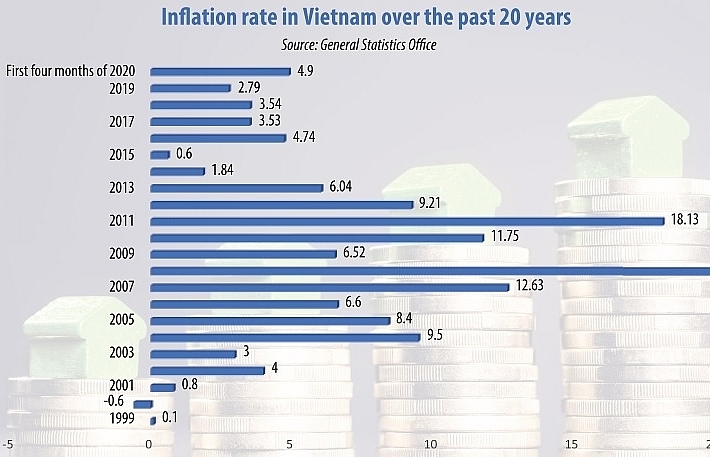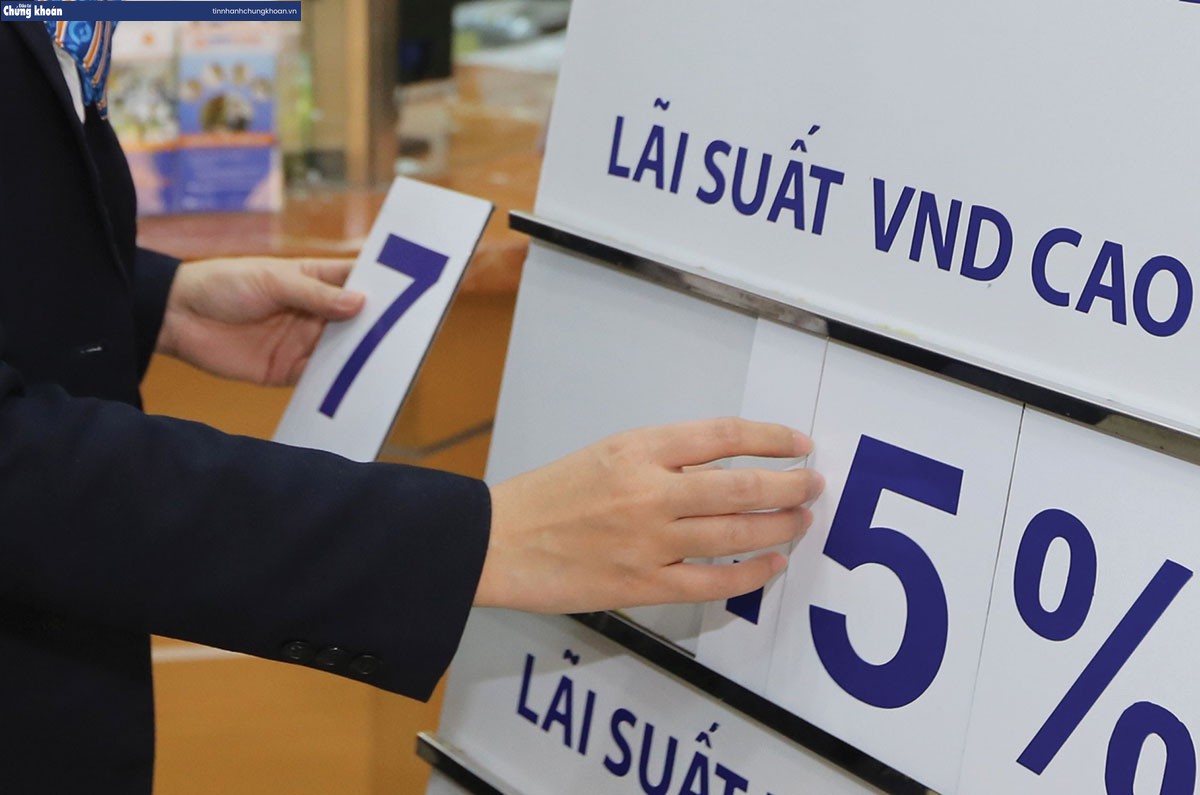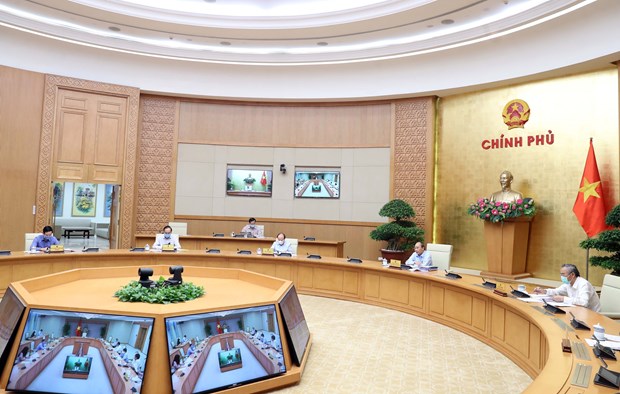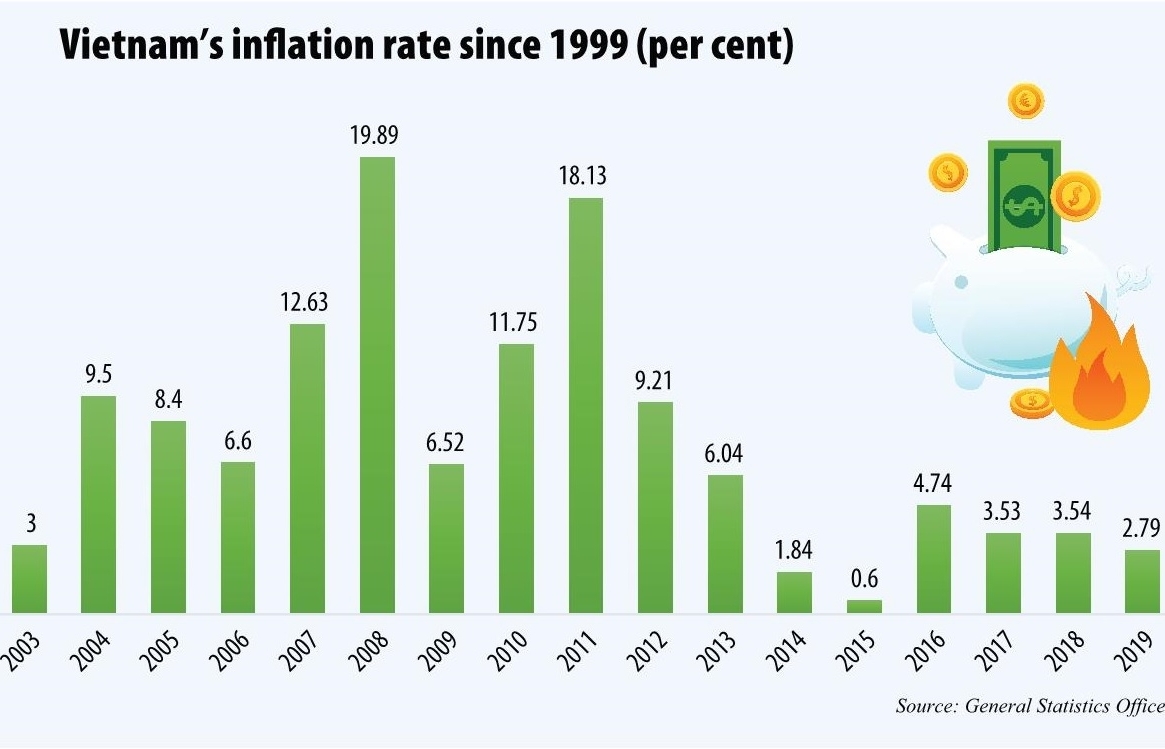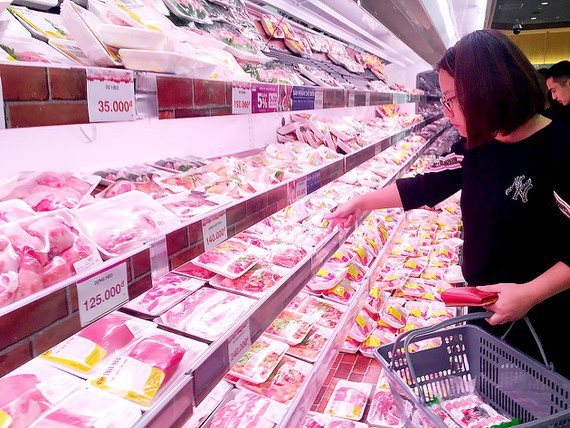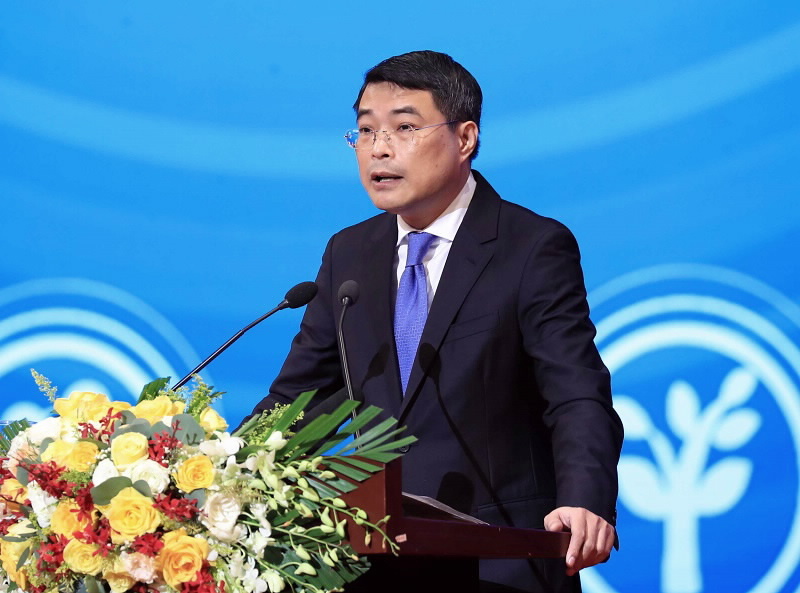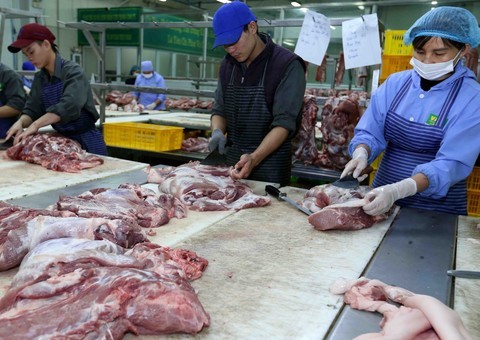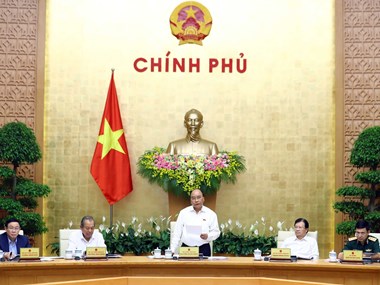- © Copyright of Vietnamnet Global.
- Tel: 024 3772 7988 Fax: (024) 37722734
- Email: evnn@vietnamnet.vn
inflation
Update news inflation
Modest inflation expected for 2020
 Despite a four-month high in the consumer price index, Vietnam will likely be successful in reining in inflation this year thanks to a decline in oil price and public demand, as well as the government’s efforts to stabilise prices in the market.
Despite a four-month high in the consumer price index, Vietnam will likely be successful in reining in inflation this year thanks to a decline in oil price and public demand, as well as the government’s efforts to stabilise prices in the market.
Low business performance may prompt Vietnam c.bank to further cut policy rates
 The central bank of Vietnam had previously cut the benchmark interest rates by 0.5 – 1 percentage point in March.
The central bank of Vietnam had previously cut the benchmark interest rates by 0.5 – 1 percentage point in March.
PM calls for prevention of speculation, price increases
 Prime Minister Nguyen Xuan Phuc requested more drastic measures to prevent speculation, price increases, and market devaluation when chairing a meeting of the National Steering Committee for Price Management on April 21.
Prime Minister Nguyen Xuan Phuc requested more drastic measures to prevent speculation, price increases, and market devaluation when chairing a meeting of the National Steering Committee for Price Management on April 21.
How Vietnam sacrifices economy to protect its people?
 Taking tough measures for the safety of people has become the government's top priority.
Taking tough measures for the safety of people has become the government's top priority.
2020 inflation rate rides on outbreak eventualities
 Vietnam is likely to experience difficulties in controlling inflation this year due to global uncertainties and unexpected price rises of many items in the local market in the wake of the ongoing coronavirus epidemic.
Vietnam is likely to experience difficulties in controlling inflation this year due to global uncertainties and unexpected price rises of many items in the local market in the wake of the ongoing coronavirus epidemic.
A lot of pressure for Vietnam's inflation control in 2020
The fluctuating price of pork last year had significant impacts on the market, as the price plummeted in the first half of the year then soared in...
Vietnam to imports 100,000 tons of pork in Q1 to offset shortage
 Vietnam would import 100,000 tons of pork in the first quarter this year to stabilize the domestic market and lower pork prices, which have surged since the outbreak of African swine fever.
Vietnam would import 100,000 tons of pork in the first quarter this year to stabilize the domestic market and lower pork prices, which have surged since the outbreak of African swine fever.
Inflation to remain below 4 percent in 2020: officials
 Inflation for the next 12 months is expected to remain lower than 4 per cent, just like it has over the past three years.
Inflation for the next 12 months is expected to remain lower than 4 per cent, just like it has over the past three years.
State firms make up 5% of total corporate loans in Vietnam
 A major proportion of bank loans are provided for the business community, particularly the private sector and individuals.
A major proportion of bank loans are provided for the business community, particularly the private sector and individuals.
Vietnam's inflation controllable despite soaring pork prices
 This years inflation is controllable at 3.3-3.9 per cent, Deputy Prime Minister Vuong Dinh Hue said while chairing a meeting early this week regarding the recent surge in pork prices, an essential foodstuff.
This years inflation is controllable at 3.3-3.9 per cent, Deputy Prime Minister Vuong Dinh Hue said while chairing a meeting early this week regarding the recent surge in pork prices, an essential foodstuff.
Vietnamese government determined to fulfil set goals: PM
 Prime Minister Nguyen Xuan Phuc underscored the determination to accomplish all goals set for 2019, striving for a GDP growth of 6.8 percent and reining in inflation under 4 percent at the Government’s monthly meeting held in Hanoi on May 31.
Prime Minister Nguyen Xuan Phuc underscored the determination to accomplish all goals set for 2019, striving for a GDP growth of 6.8 percent and reining in inflation under 4 percent at the Government’s monthly meeting held in Hanoi on May 31.
Inflation in 2019: will it remain below 4-5 percent?
VietNamNet Bridge - Curbing the inflation rate at below 4 percent in 2018 is within reach, but this will be a difficult task in 2019.
Tightening monetary policy: strong message from central bank
The State Bank of Vietnam (SBV) has requested commercial banks to control disbursement in risky business fields such as real estate, consumer credit and securities investments.
VN Government takes actions to rein in inflation
VietNamNet Bridge - The government has applied measures to force the prices of essential goods down in an effort to curb inflation at 4 percent or lower.
Experts warn of higher inflation in last months of the year
Some weak points of the economy still have not been settled, while the prices of many kinds of goods are predicted to increase.
How will Vietnam deal with a 10-year crisis cycle?
VietNamNet Bridge - Vietnam will have solutions to restrict the effects of any future global economic downturn, according to General Statistics Office’s director Nguyen Bich Lam.
Economy stable, inflation under 4%
The Government reported yesterday to the National Assembly that the macro economy remains stable, inflation is controlled under 4 per cent, and the annual growth target of 6.7 per cent is likely to be achieved.
Hot and cold: Euro zone grows but inflation slows
Data in the coming week should confirm the euro zone economy is running hot, after the IMF upgraded growth forecasts and Greece returned to the debt market,
Inflation may return by the end of 2017: analysts
VietNamNet Bridge - It will be difficult to curb inflation if unreasonable measures are used to reach a GDP growth rate of 6.7 percent and low inflation rate of 4 percent in 2017.
First debate on 2018 regional minimum wage kicks off
VietNamNet Bridge – The National Salary Council on Tuesday kicked off the first debate on regional minimum wage for 2018.
